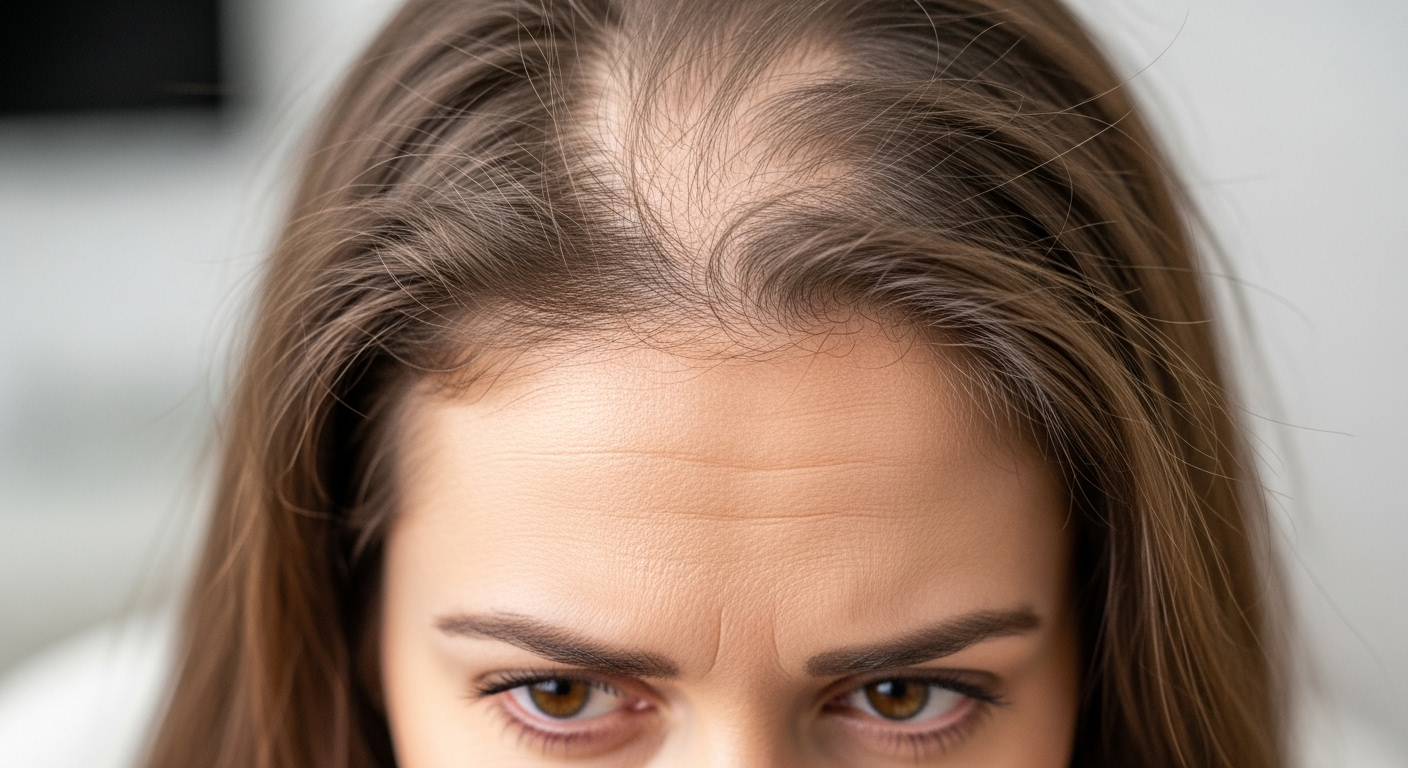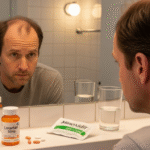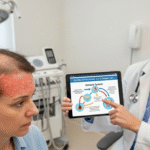Undergoing in vitro fertilization (IVF Hair Loss) can be an emotional and physically demanding journey. Among the many changes your body experiences, some individuals notice hair thinning or shedding during or after treatment. If you're wondering, "Is hair loss from IVF permanent?"—you're not alone. This article delves into the causes of IVF-related hair loss, its …
Undergoing in vitro fertilization (IVF Hair Loss) can be an emotional and physically demanding journey. Among the many changes your body experiences, some individuals notice hair thinning or shedding during or after treatment.
If you’re wondering, “Is hair loss from IVF permanent?”—you’re not alone. This article delves into the causes of IVF-related hair loss, its potential permanence, and effective strategies to manage and prevent it. By understanding the underlying factors and taking proactive steps, you can navigate this aspect of your IVF experience with confidence.
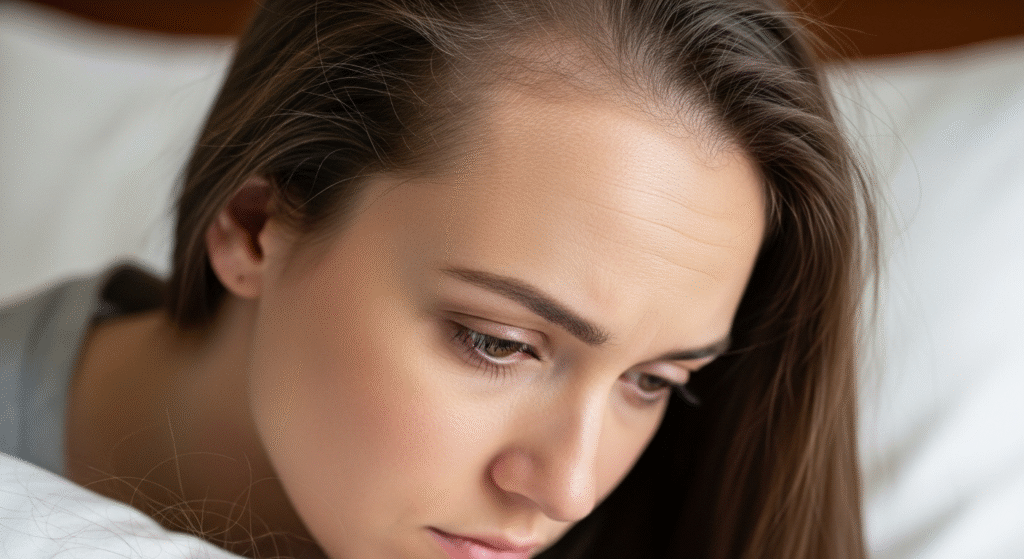
Understanding IVF Hair Loss and Its Impact on Hair Health
What Is IVF and How Does It Affect the Body?
In vitro fertilization (IVF) involves stimulating the ovaries to produce multiple eggs, retrieving them, fertilizing them outside the body, and transferring the resulting embryos into the uterus. This process requires the use of fertility medications that can significantly alter hormone levels. These hormonal fluctuations can affect various bodily functions, including hair growth cycles.
Hormonal Changes and Hair Loss
The primary cause of hair loss during IVF is the rapid hormonal changes induced by fertility medications. These medications can lead to conditions like telogen effluvium, where hair follicles prematurely enter the resting phase, causing increased shedding. Additionally, stress associated with IVF procedures can exacerbate hair loss.
Is IVF Related Hair Loss Permanent?
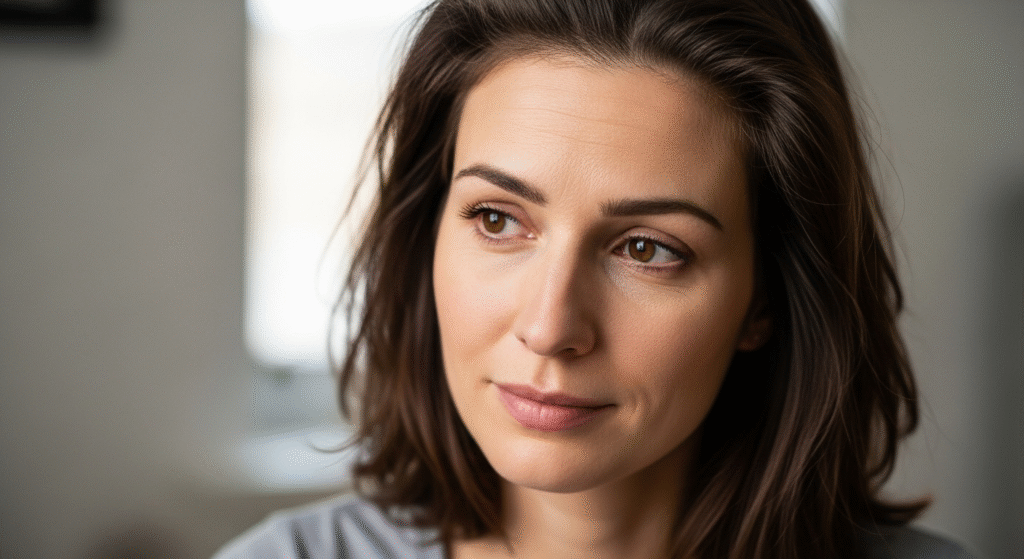
Temporary Nature of Hair Loss
In most cases, hair loss associated with IVF is temporary. Once hormone levels stabilize, hair growth typically resumes. However, the duration of hair regrowth can vary among individuals.
Factors Influencing Recovery
The recovery of hair growth depends on several factors, including:
- Hormonal Balance: Restoring normal hormone levels is crucial for hair regrowth.
- Nutritional Status: Adequate intake of essential nutrients supports hair health.
- Stress Management: Reducing stress can positively impact hair recovery.
- Underlying Health Conditions: Conditions like thyroid disorders can affect hair regrowth.
Consulting with a healthcare provider can help address these factors and promote hair recovery.
Managing and Preventing Hair Loss During IVF
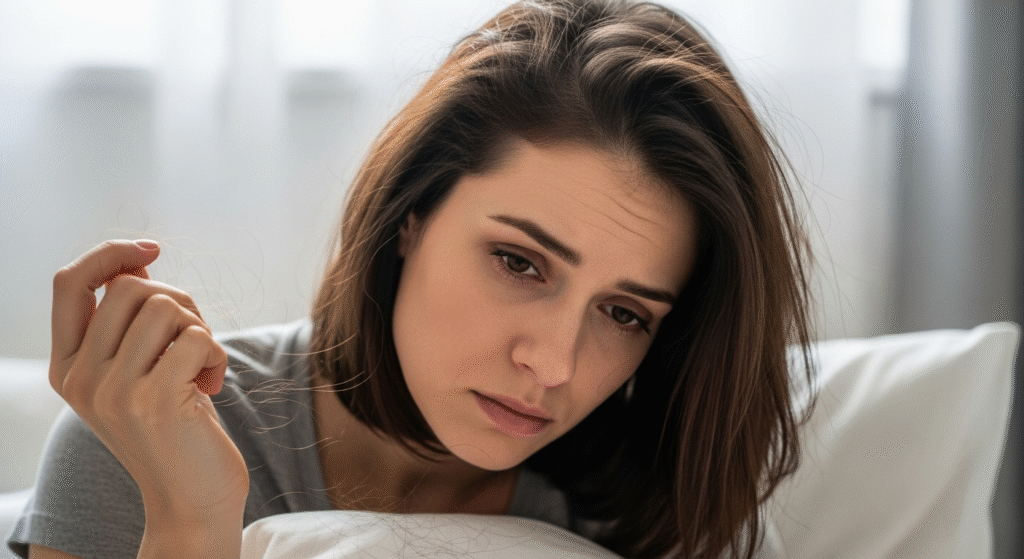
1. Consult with Your IVF Specialist
Before starting IVF treatment, discuss potential side effects, including hair loss, with your fertility specialist. They can provide guidance on managing these effects and may adjust your treatment plan accordingly.
2. Maintain a Balanced Diet
Ensure your diet includes essential nutrients that support hair health:
- Proteins: Hair is primarily made of keratin, a protein.
- Iron: Prevents hair shedding.
- Vitamins A, C, D, and E: Promote healthy hair follicles.
- Zinc: Supports hair tissue growth and repair.
Incorporate foods like leafy greens, nuts, seeds, eggs, and lean meats into your meals.
3. Manage Stress Effectively
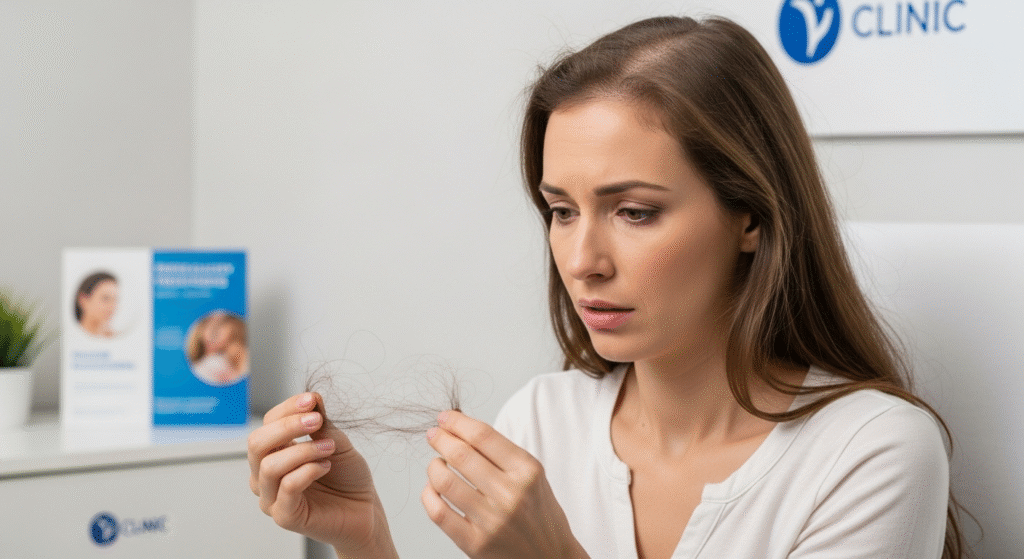
Chronic stress can exacerbate hair loss. Consider:
- Regular Exercise: Activities like walking, yoga, or swimming can reduce stress levels.
- Mindfulness Practices: Meditation and deep-breathing exercises can promote relaxation.
- Adequate Sleep: Aim for 7-9 hours of quality sleep per night.
4. Gentle Hair Care Practices
Avoid hairstyles that pull tightly on the hair, such as ponytails or braids. Use a wide-toothed comb to detangle wet hair and minimize breakage. Limit the use of heat styling tools and harsh chemical treatments.
5. Consider Topical Treatments
Minoxidil is an over-the-counter topical treatment that can stimulate hair growth. Consult your healthcare provider before starting any new treatment to ensure it’s appropriate for your situation.
6. Explore Platelet-Rich Plasma (PRP) Therapy
PRP therapy involves using your own blood’s platelets to stimulate hair growth. While more research is needed, some studies suggest it may be beneficial for hair regrowth. Discuss this option with your doctor to determine if it’s suitable for you.
When to Seek Professional Help
If hair loss persists beyond six months or worsens, it’s crucial to consult a dermatologist or trichologist. They can perform tests to determine the underlying cause and recommend appropriate treatments.
FAQs
Q1: Can IVF cause permanent hair loss?
A1: Permanent hair loss due to IVF is rare. Most cases of hair loss are temporary and reversible upon discontinuation of the medication.
Q2: How long does hair loss last after IVF treatment?
A2: Hair loss typically begins to reverse within 3 to 6 months after stopping the medication, but this can vary depending on individual factors.
Q3: Are there alternative medications to IVF that don’t cause hair loss?
A3: Yes, other classes of fertility medications, such as calcium channel blockers and angiotensin-converting enzyme (ACE) inhibitors, are less commonly associated with hair loss. However, each medication has its own side effect profile, so it’s essential to discuss alternatives with your healthcare provider.
Q4: Can stress alone cause hair loss during IVF?
A4: Yes, chronic stress is a known trigger for telogen effluvium, a type of temporary hair shedding. Managing stress through relaxation techniques and lifestyle changes can help mitigate this effect.
Q5: Should I stop IVF treatment if I experience hair loss?
A5: Do not stop taking any prescribed medication without consulting your healthcare provider. They can evaluate your situation and determine the best course of action.
Conclusion
Experiencing hair loss during IVF can be distressing, but it’s often a temporary side effect that resolves with time and proper care. By maintaining a balanced diet, managing stress, and consulting with healthcare professionals, you can support your hair health during this challenging period. Remember, you’re not alone—many individuals have navigated this journey successfully and have seen their hair return to its normal state.
Call to Action: If you’re experiencing hair loss during IVF, schedule a consultation with Dr. Uzma Irfan, an ISHRS-certified surgeon in Islamabad to discuss potential causes and solutions tailored to your health needs.

